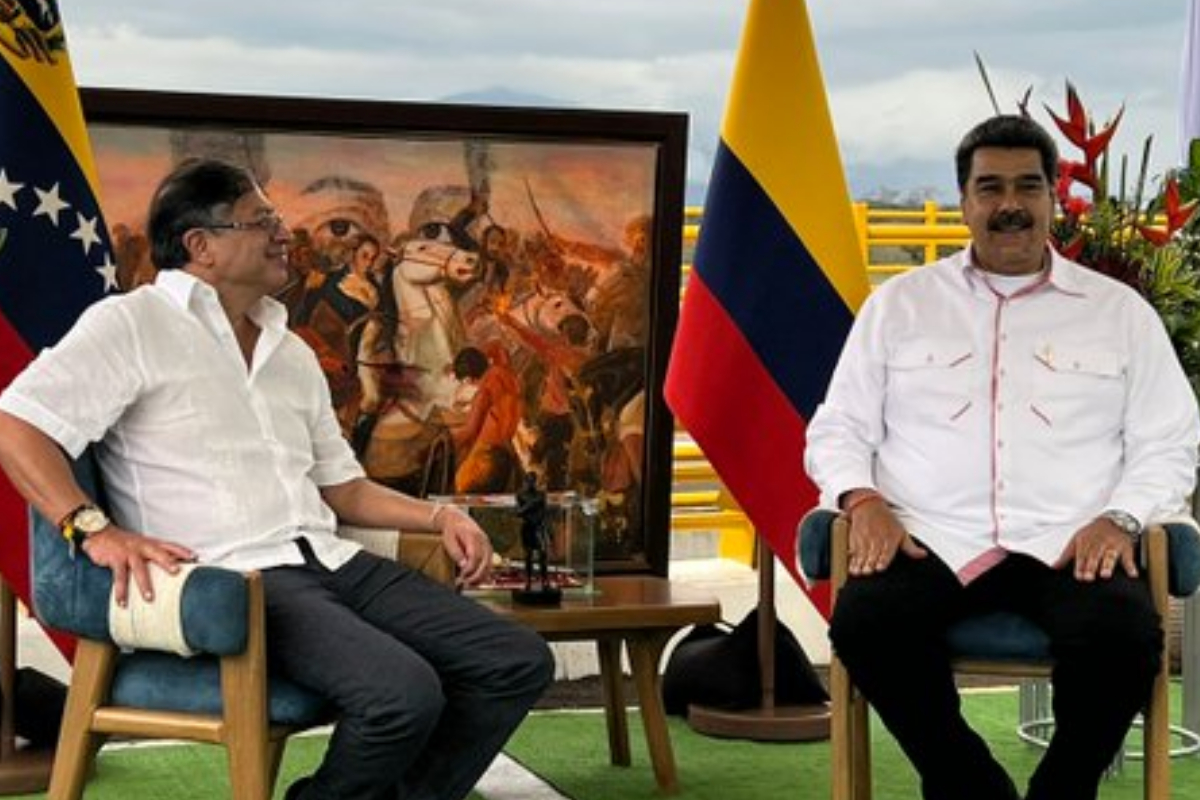- The leaders of Colombia and Venezuela restored a trade agreement.
- Maduro pledged to create a shared “economic zone” with set trade restrictions.
- Diplomatic relations between the two nations were cut.
As the most recent sign of peace between the neighbors, the leaders of Colombia and Venezuela on Thursday restored a trade agreement that had been put on hold for four years.
Nicolas Maduro, the president of Venezuela, pledged to create a shared “economic zone” with set trade restrictions during a signing ceremony with Gustavo Petro, the president of Colombia.
Petro, who was elected as Colombia’s first-ever leftist president last year, continued, “We have to fill these bridges with trade, remove any barriers that may exist.”
The two leaders stood on each side of a white line separating the cities of Urena, in western Venezuela, and Cucuta, in northern Colombia, respectively, as they signed the deal while donning similar white shirts.
[embedpost slug = “/venezuela-teachers-march-for-better-wages-as-inflation-soars/”]
When Venezuela’s then-president Hugo Chavez decided to leave the Andean Community (CAN), a free-trade organization of which Colombia is still a member, the initial agreement was signed in 2011.
Diplomatic relations between the two nations were cut after Ivan Duque, Petro’s conservative predecessor joined a number of other nations in recognizing Juan Guaido as Venezuela’s legitimate leader.
The session on Thursday was the fourth face-to-face meeting between the two leaders since Petro’s ascent to power. He immediately sought to repair his relationship with the Maduro administration.
The 2,200-kilometer (1,400-mile) border between the two countries was completely reopened to traffic in September.
At the symbolic celebration, which featured singing and dancing, Maduro said the deal “updates” taxes and trade laws. But, neither of the two presidents provided any additional information.
The two South American nations’ trade peaked in 2008 at $7.2 billion before falling to just $400 million amid the diplomatic standoff.
The continuation of normalized commerce, according to projections by the Colombian-Venezuelan Chamber of Integration (Cavecol), will bring that amount back up to $1.2 billion in 2022.
[embedpost slug = “/colombia-may-need-to-increase-rates-more-depending-on-inflation-imf/”]





















